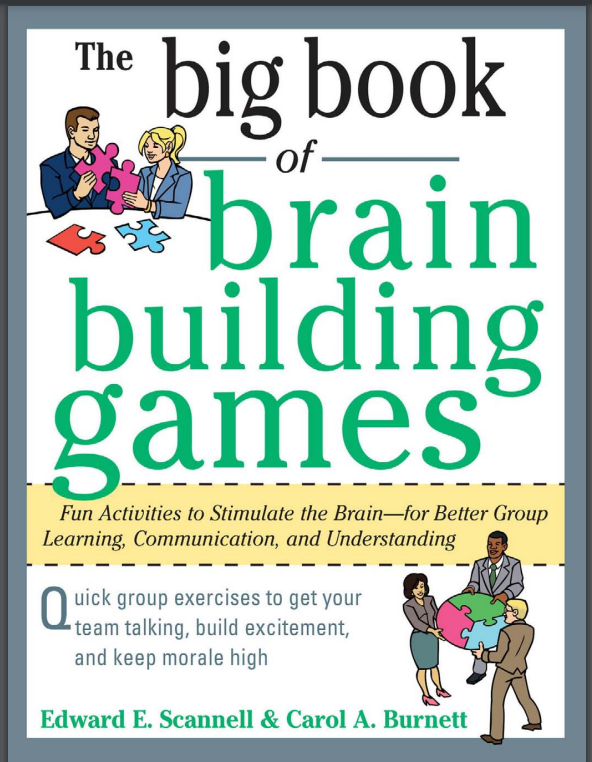

\"The Big Book of Brain Building Games: Fun Activities to Stimulate Your Mind\" by Ivan Moscovich - Comprehensive Book Summary
\"The Big Book of Brain Building Games\" by Ivan Moscovich is an extensive collection of mental exercises, puzzles, and cognitive challenges designed to enhance various aspects of brain function while providing engaging entertainment. Moscovich, a renowned puzzle creator and mathematician, has compiled over 300 brain-training activities that target different cognitive skills including memory, logic, spatial reasoning, pattern recognition, mathematical thinking, and creative problem-solving. The book serves as both a recreational puzzle collection and a practical tool for maintaining and improving mental acuity across all age groups.
The book is systematically organized into different categories of cognitive challenges, each focusing on specific mental abilities and neural pathways. Moscovich begins with visual and spatial puzzles that enhance three-dimensional thinking, pattern recognition, and visual processing skills. These include geometric puzzles, optical illusions, maze challenges, and construction problems that require readers to manipulate shapes, rotate objects mentally, and understand spatial relationships. The visual puzzles progress from simple pattern completion exercises to complex architectural and engineering challenges that demand sophisticated spatial reasoning abilities.
Mathematical and logical reasoning sections form another major component of the book, featuring number puzzles, sequence problems, algebraic thinking challenges, and probability exercises. Moscovich presents these mathematical concepts through engaging games and puzzles rather than traditional problem sets, making advanced mathematical thinking accessible and enjoyable for general audiences. The logic puzzles include deductive reasoning challenges, syllogistic problems, and critical thinking exercises that strengthen analytical skills and systematic problem-solving approaches.
Memory enhancement activities throughout the book target different types of memory systems, including working memory, long-term recall, sequential memory, and associative memory. Moscovich provides exercises that range from simple memorization games to complex memory palace techniques and mnemonic strategies. These activities are designed to improve both the capacity and efficiency of memory systems while teaching practical techniques that readers can apply in their daily lives for better information retention and recall.
The book also includes creative thinking and lateral problem-solving challenges that encourage readers to approach problems from unconventional angles and develop innovative solutions. These exercises break away from linear thinking patterns and promote cognitive flexibility, helping readers overcome mental blocks and develop more creative approaches to various challenges. Moscovich incorporates elements of wordplay, lateral thinking puzzles, and open-ended problems that have multiple possible solutions, fostering divergent thinking skills.
Throughout the collection, Moscovich provides clear instructions, varying difficulty levels, and detailed solutions with explanations that help readers understand the underlying principles behind each puzzle type. The book is designed for progressive skill development, allowing readers to start with simpler challenges and gradually work toward more complex problems as their cognitive abilities improve. The author emphasizes that regular engagement with diverse mental challenges can help maintain cognitive function throughout aging and may contribute to building cognitive reserve that protects against mental decline. This comprehensive brain training resource combines scientific understanding of cognitive function with entertaining and challenging activities, making it an valuable tool for anyone seeking to enhance their mental capabilities while enjoying stimulating recreational activities.



























.jpg)
.jpeg)







.jpg)


.jpg)

.jpg)

.jpeg)


.jpeg)












.jpg)




.jpg)

.jpg)


.jpeg)






.jpg)








.png)




.jpeg)

